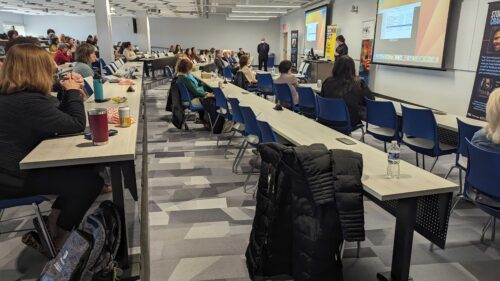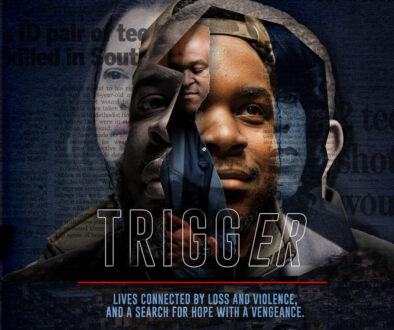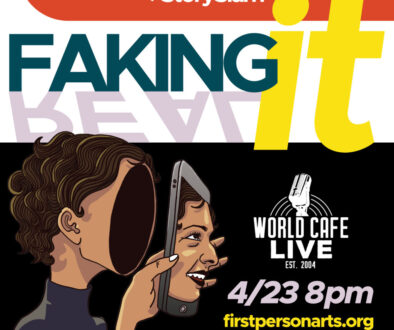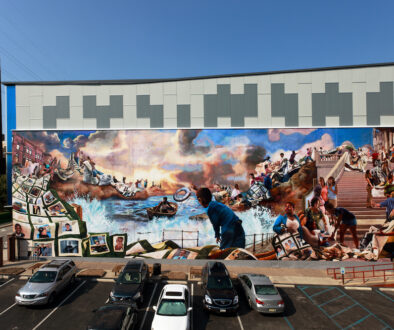“Extremely powerful” TRIGGER screening at Jefferson College of Nursing

By: Vanessa Taylor, Impact Producer
For many in the US, gun violence has become just another part of daily life. As Nicole Cavaliere, Vice-Chair of Graduate Programs at the Jefferson College of Nursing, told me, “We’re sometimes numb to gun violence because we see it on the news every day. You see mass shootings every day.” But in February, Jefferson gathered healthcare professionals at its Abington-Dixon campus to open up a discussion on gun violence with a screening of the First Person Arts documentary film, TRIGGER.
In collaboration with the City of Philadelphia’s Department of Behavioral Health and disAbility Services (DBHIDS), First Person Arts presented our film with a panel discussion moderated by Pennsylvania Human Relations Commission Executive Director Chad Dion Lassiter. The discussion featured panelists impacted by gun violence: Rosalind Pichardo, founder of Operation Save Our City, Charles Horton, founder of Gun Violence Survivors’ Support Group, and DBHIDS’ Community Equity Engagement Manager, Gabriel Bryant.
While preliminary data shows that gun violence rates in the United States decreased in 2023, there were still nearly 400 fatal shooting victims that year in Philadelphia alone. And even as overall gun violence rates fall, it continues to leave behind a massive impact on victims, their families, and wider communities. For healthcare providers, facing the realities of gun violenceday after day can take a heavy toll. As Kate Fitzpatrick, the Executive Vice-President for Jefferson Health said, “We understand the aftermath [and] the devastation of gun violence [because] it’s happening every day in our hospitals. We’re experiencing it.”
Nationwide, healthcare workers are facing a mental health crisis exacerbated by the coronavirus pandemic. According to the Centers for Disease Control and Prevention’s 2023 report, poor mental health symptoms rose more amongst health workers than those in any other industry. With these impacts in mind, Fitzpatrick continued, “[TRIGGER] reminds me as a nurse leader [of] what we need to do to make sure that we’re helping our teams — our clinicians — deal with the second trauma, because [there is] an impact from witnessing that even though it doesn’t happen to them.”
Similarly, Cavaliere reflected that healthcare workers have to “look internally as well.” She added, “What trauma have you experienced? How are we affected by it? [TRIGGER] is very, very important from that perspective, and what lessons to learn as a healthcare provider.”
During the discussion after the film, both panelists and participants recounted their own experiences with gun violence. But despite the heaviness that occupied the room at times, TRIGGER didn’t leave participants feeling hopeless. Cavaliere shared that the screening was “extremely powerful”, and Fitzpatrick, who also worked in West Philadelphia as a trauma nurse for a decade, noted, “It actually motivates me and inspires me to think about how we can do more as a community of healthcare providers in Philadelphia. I was uplifted.”
“It was said at the beginning: Trigger is an intervention,” Fitzpatrick continued. “Let’s have as many people hear the voices in this film so we can be a force for good and make some real, substantive change.”
If you are interested in scheduling a TRIGGER screening for your community, you can schedule an event directly with our team.



